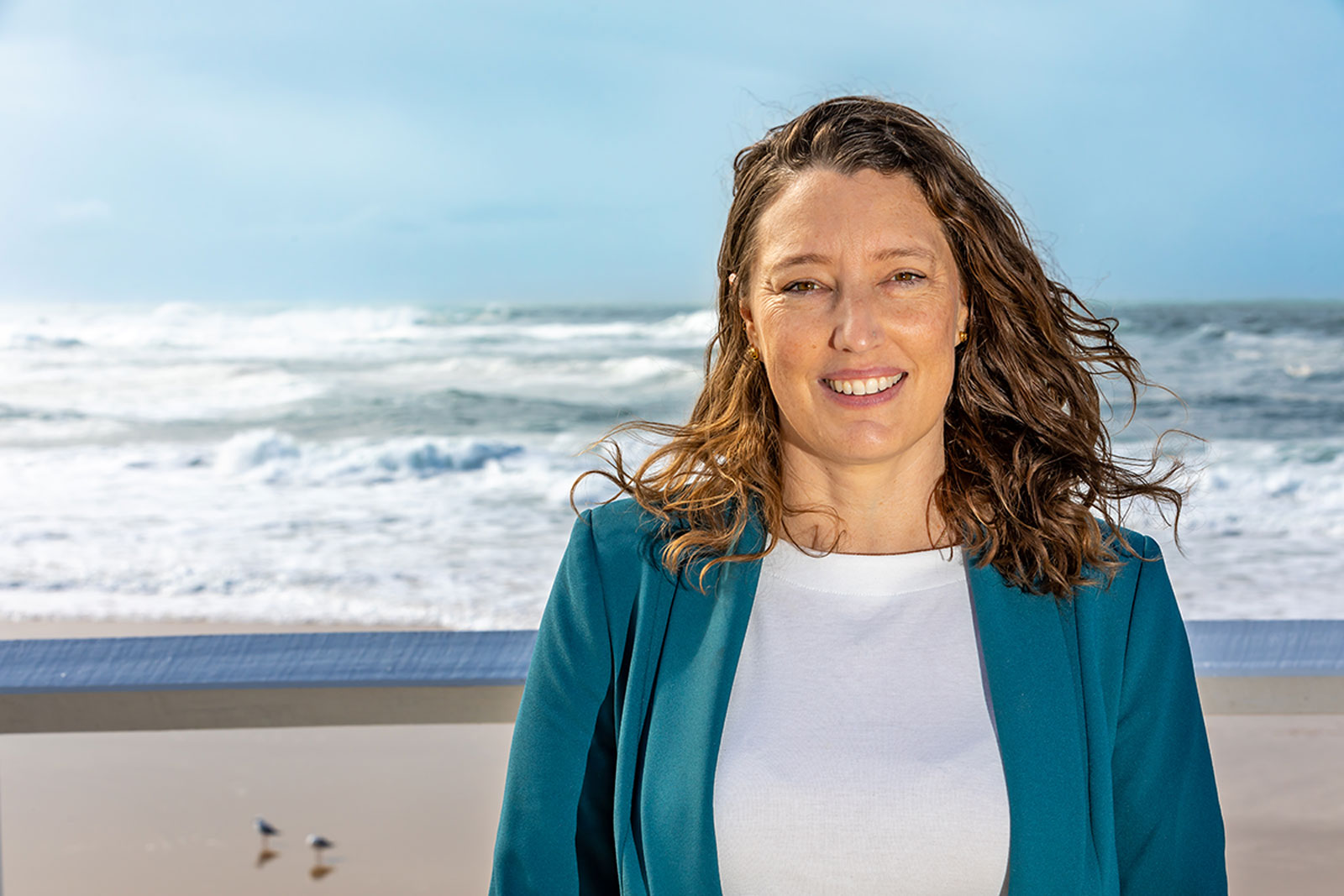Researcher Highlights
Partnering with the Pacific for a greener future
Environmental anthropologist Dr Sascha Fuller is committed to delivering cooperative solutions to mitigate the environmental, climate and waste challenges faced by Pacific Island communities.

With over 15 years research and field experience in the Pacific, Australia, New Zealand, Nepal and Mexico, Sascha coordinates the University of Newcastle's Pacific Node in partnership with the Secretariat of the Pacific Regional Environment Programme (SPREP).
A strategic initiative administered by leading research institute, the Newcastle Institute for Energy and Resources (NIER), the Pacific Node provides a flexible framework to support the resilience and sustainability of Pacific communities who are under increasing environmental, economic and social pressures.
Drawing upon her experience in the international development and tertiary education sectors, Sascha is a key contributor in delivering the University's strategy for international engagement in the Pacific region and helping to support the maintenance of ecosystem health and biodiversity.
“As an environmental anthropologist, I’m interested in the diverse ways people interact with, perceive, and value ‘environment’. This includes the way people pollute and conserve the natural world,” says Sascha.
“I’ve been fortunate enough to work across cultures to better comprehend how global issues such as climate change and plastics pollution play out in local communities, to better understand who is involved, and what is at stake.”
Sascha’s research focuses on human-environment relations, in particular plastics pollution and climate change, and their intersection with other environmental, sociocultural, political and economic issues. This includes gender, human rights, and development assistance, which present both risks and opportunities for rural and regional livelihoods and resilience.
Research for a better tomorrow
Sascha’s recent collaborative research paper Plastics Pollution as Waste Colonialism in Te Moananui, published by the Journal of Political Ecology, explored the impact of plastics pollution in the Pacific Islands (Te Moananui).
The findings demonstrate that prioritising the perspectives of Indigenous caretakers, rather than the concerns of settler-colonisers and commercial companies with vested interests, is crucial to reversing plastic pollution and ending the exploitation of Te Moananui as a dumping ground.
“The overall aim of my research is to help establish positive outcomes for society, environment, and culture, by demonstrating the policy considerations required to effectively protect the environment, human health, and minority groups from the harmful impacts of plastic pollution,” says Sascha.
“I’m particularly concerned with mitigating the gendered impacts of environmental and development interventions and decision-making.”
Despite their known harms, Sascha says that the rate of toxic plastics production and consumption is accelerating worldwide.
“The global pandemic has had a significant impact on our demand for single-use plastics, which are ironically marketed as healthy and sanitary. But many single use plastics are problematic because of their toxic nature, and this makes them incredibly unhealthy, both for our environment and for humans.”
Te Moananui is grossly and disproportionally affected by plastics pollution due to its physical location and inherent colonialism which has impacted Te Moanani peoples’ spiritual, social, cultural, economic and social ties with their Ocean.
Sascha says a return to Indigenous-led solutions may be the only hope to reverse the plastics pollution which is threatening the health and livelihoods of the Pacific Island people.
“My recent plastics pollution research has helped facilitate networks and knowledge brokerage across the Pacific region, highlighting the challenges facing Pacific Island communities,” says Sascha.
“It’s had the greatest impact by providing an information and evidence base for Pacific island government representatives to use and negotiate plastic pollution prevention policy for their own nation states.”
Sascha notes that collaboration with the Secretariat of the Regional Environment Programme (SPREP), the Environmental Investigation Agency (EIA), the Center for International Environmental Law (CIEL) and Dr Trisia Farrelly, from Massey University, has been crucial to the impact of this research.
Additional research
Sascha co-authored the article The Strengths and Weaknesses of Pacific Islands Plastic Pollution Policy Frameworks and co-developed five plastics pollution prevention factsheets: A Safe(r) Circular Economy for Plastics in the Pacific Region; Plastics Pollution Prevention Policy Gaps in the Pacific Region; Plastics, Marine Litter, and Climate in the Pacific Region; Plastics Impacts on Human Health in the Pacific Region; and Plastics Pollution Impacts on Human Rights in the Pacific Region.
She also supported the drafting of the Pacific Regional Declaration on the Prevention of Marine Litter and Plastic Pollution and was one of 15 scientists to draft the Scientists’ Declaration on plastic pollution.
Sascha is currently supervising four PhD candidates and one Honours student who are working in partnership with the Secretariat of the Pacific Regional Environment Programme (SPREP) on projects related to invasive species management, coral reef ecosystem resilience, and compliance to the International Convention for the Prevention of Pollution from Ships.
“I hope to continue to build relationships and collaborations that will help drive solutions to matters of critical environmental concern. I’m looking forward to the first meeting of the Intergovernmental Negotiating Committee (INC) on a treaty to ‘End plastics pollution’ to be held in Uruguay in November.”
The University of Newcastle acknowledges the traditional custodians of the lands within our footprint areas: Awabakal, Darkinjung, Biripai, Worimi, Wonnarua, and Eora Nations. We also pay respect to the wisdom of our Elders past and present.